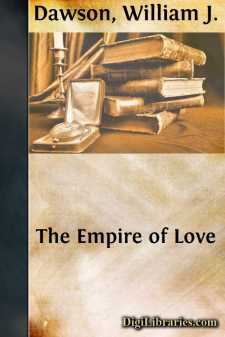Categories
- Antiques & Collectibles 13
- Architecture 36
- Art 48
- Bibles 22
- Biography & Autobiography 813
- Body, Mind & Spirit 142
- Business & Economics 28
- Children's Books 17
- Children's Fiction 14
- Computers 4
- Cooking 94
- Crafts & Hobbies 4
- Drama 346
- Education 46
- Family & Relationships 57
- Fiction 11829
- Games 19
- Gardening 17
- Health & Fitness 34
- History 1377
- House & Home 1
- Humor 147
- Juvenile Fiction 1873
- Juvenile Nonfiction 202
- Language Arts & Disciplines 88
- Law 16
- Literary Collections 686
- Literary Criticism 179
- Mathematics 13
- Medical 41
- Music 40
- Nature 179
- Non-Classifiable 1768
- Performing Arts 7
- Periodicals 1453
- Philosophy 64
- Photography 2
- Poetry 896
- Political Science 203
- Psychology 42
- Reference 154
- Religion 513
- Science 126
- Self-Help 84
- Social Science 81
- Sports & Recreation 34
- Study Aids 3
- Technology & Engineering 59
- Transportation 23
- Travel 463
- True Crime 29
The Quest of the Simple Life
Categories:
Description:
Excerpt
CHAPTER I
THE HOUSE OF BONDAGE
For a considerable number of years I had been a resident in London, which city I regarded alternately as my Paradise and my House of Bondage. I am by no means one of those who are always ready to fling opprobrious epithets at London, such as 'a pestilent wen,' a cluster of 'squalid villages,' and the like; on the contrary, I regard London as the most fascinating of all cities, with the one exception of that city of Eternal Memories beside the Tiber. But even Horace loved the olive-groves of Tivoli more than the far-ranged splendours of the Palatine; and I may be pardoned if an occasional vision of green fields often left my eye insensitive to metropolitan attractions.
This is a somewhat sonorous preface to the small matter of my story; but I am anxious to elaborate it a little, lest it should be imagined that I am merely a person of bucolic mind, to whom all cities or large congregations of my fellow-men are in themselves abhorrent. On the contrary I have an inherent love of all cities which are something more than mere centres of manufacturing industry. The truly admirable city secures interest, and even passionate love, not because it is a congeries of thriving factories, but rather by the dignity of its position, the splendour of its architecture, the variety and volume of its life, the imperial, literary, and artistic interests of which it is the centre, and the prolongation of its history through tumultuous periods of time, which fade into the suggestive shadows of antiquity. London answers perfectly to this definition of the truly admirable city. It has been the stage of innumerable historic pageants; it presents an unexampled variety of life; and there is majesty in the mere sense of multitude with which it arrests and often overpowers the mind.
As I have already, with an innocent impertinence, justified myself by Horace, so I will now justify myself by Wordsworth, whose famous sonnet written on Westminster Bridge is sufficient proof that he could feel the charm of cities as deeply as the charm of Nature. 'Earth hath not anything to show more fair,' wrote Wordsworth, and of a truth London has moods and moments of almost unearthly beauty, perhaps unparalleled by any vision that inebriates the eye in the most gorgeous dawn that flushes Alpine snows, or the most solemn sunset that builds a gate of gold across the profound depth of Borrowdale or Wastwater. He who has seen the tower of St. Clement Danes swim up, like an insubstantial fabric, through violet mist above the roaring Strand; or the golden Cross upon St. Paul's with a flag of tinted cloud flying from it; or the solemn reaches of the Thames bathed in smoky purple at the slow close of a summer's day, will know what I mean, and will (it is possible) have some memory of his own which will endorse the justness of my praise.
From this exalted prelude I will at once descend to more prosaic matter, leaving my reader, in his charity, to devise for me an apology which I have neither the wit nor the desire to invent for myself....



